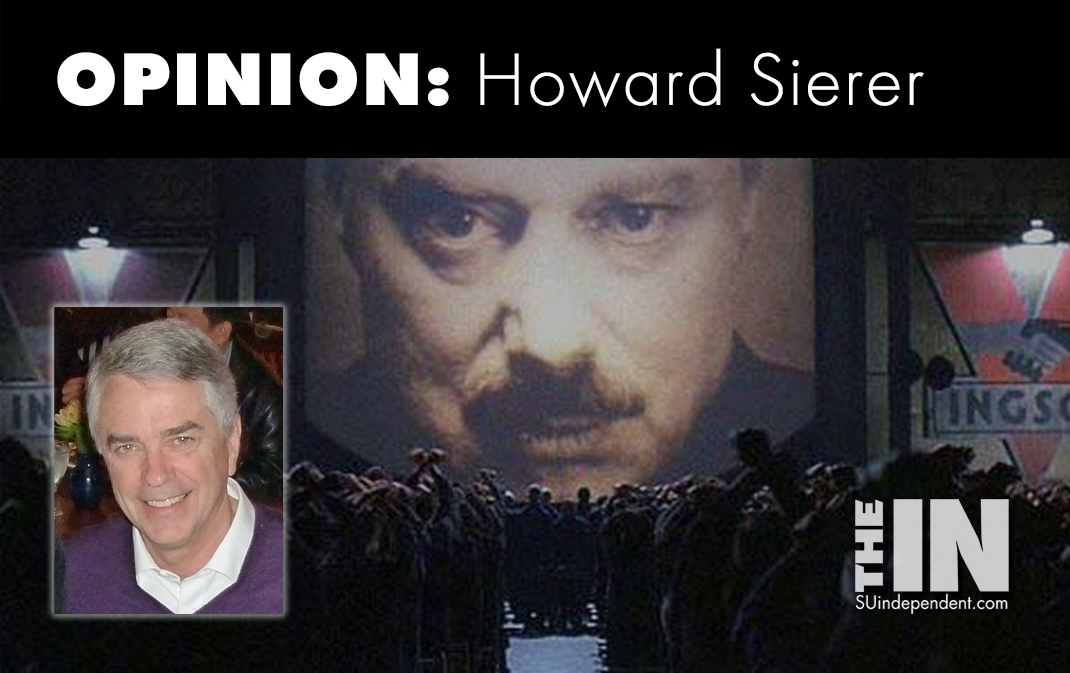
George Orwell, Progressives and the Cultural Divide
– By Howard Sierer –
Progressive Democrats don’t seem to understand why they are losing the working class. Is it their messaging or their candidates? Author George Orwell’s observations from the 1930s ring true today. His book “The Road to Wigan Pier” documented the terrible conditions of the people who lived and worked in northern England during the Great Depression.
Orwell, a socialist himself, also addressed a broader question in his book: If socialism is the way toward providing a fairer, more decent life for those with the least, why has it not succeeded politically? His answer: there was a deep cultural divide between socialism’s advocates and those they were seeking to persuade.
As you read the following quotes from his book, substitute “progressivism” for his word “socialism.”
Orwell wrote, “Socialism in its developed form is a theory confined entirely to the [relatively well-off upper] middle class. In its language, it is formal, stilted, wholly distant from the language of ordinary citizens, spoken by people who are several rungs above their audience, and with no intention of giving up that status.”
He goes on, citing “the horrible, the early disputing prevalence of cranks wherever Socialists are gathered together. One sometimes gets the impression that the mere words ‘Socialism’ and ‘Communism’ draw toward them with magnetic force every fruit-juice drinker, nudist, sandal-wearer, sex-maniac, Quaker, ‘Nature Cure’ quack, pacifist, and feminist in England.”
He noted a Socialist summer school prospectus in which attendees were asked if they prefer a vegetarian diet. Progressives today would ask which personal pronouns attendees would prefer when others address them and whether they required a vegan diet. As Orwell said and I agree, “That kind of thing is by itself sufficient to alienate plenty of decent people.”
Many of the rest of us, including a substantial majority of Democrats, have recognized that today’s Democratic Party is dominated by a relatively small progressive elite that doesn’t understand or reflect our values. The party has not been able to restrain these adamant progressive voices whose views and prescribed policies are continually parroted by the mainstream media.
Consider Orwell’s argument that the language of the left is “wholly distant from the language of ordinary citizens.” As a current example, take progressives’ newly-invented term “Latinx,” coined to fit their current gender neutrality fad and allowing them to avoid having to use either the masculine “Latino” or feminine “Latina.” A recent survey showed that only 2 percent of Hispanics prefer the term “Latinx” to describe themselves. Apparently the other 98% recognize that human beings are either male or female.
Keeping up with the latest progressive acronyms is likewise a challenge. How about the National Abortion Rights Action League’s tweet linking feminism with transgenderism: “If your feminism doesn’t understand how anti-trans policies disproportionately impact BIPOC folks, particularly Black trans women and girls, it’s not feminism.” For non-progressive readers, BIPOC stands for Black, Indigenous, people of color” and is preferred over the less-inclusive “POC.” Explain that to your working-class friends.
Most of us regard all this as foolishness and it isn’t playing well with voters as the Democratic Party is learning to its chagrin.
Organized labor which represented a third of all workers back in 1960 was a visible, potent part of the Democratic Party and represented many of those who worked with their hands. Today unions represent about 6% of private sector workers while representing 36% of public sector workers. Frequently ignored, there is an inevitable tension in the Democratic Party between public sector workers who are paid with tax money and private sector workers who provide that tax money.
Orwell would recognize another problem that today’s Democrats face. Progressive messaging is developed for the most part by people who are born and raised in big coastal cities, attend elite schools, and whose working life consists of words and ideas, not hammers and nails. Most progressives are far distant from the life of the “regular” Americans whom they hope to influence.
Former Democratic Montana Gov. Steve Bullock described his party this way: “Coastal, overly educated, elitist, judgmental, socialist — a bundle of identity groups and interests lacking any shared principles. The problem isn’t the candidates we nominate. It’s the perception of the party we belong to.”
For decades, Republicans have been successful in associating Democrats with the term “socialism,” a term as unpopular in Orwell’s day as it is today. A recent Gallup poll: 60% of Americans are “positive” about capitalism while only 38% are positive about socialism.
Orwell’s observation that the leftist message of his day was “spoken by people who are several rungs above their audience” applies all-too-well to today’s progressive elite. A poll commissioned by the Democratic Party found that voters think the party is “preachy,” “judgmental” and “focused on culture wars.”
Orwell’s warnings fell on deaf ears in England just as today’s tone-deaf progressives are oblivious to the world outside their leftist media echo chambers. If the larger Democratic Party is unwilling or unable to shake off its increasingly unpopular progressive messaging, past will be prologue: it can expect in coming years to be the minority party at the federal level and in many states.



